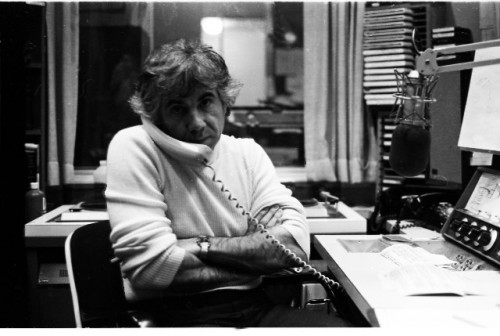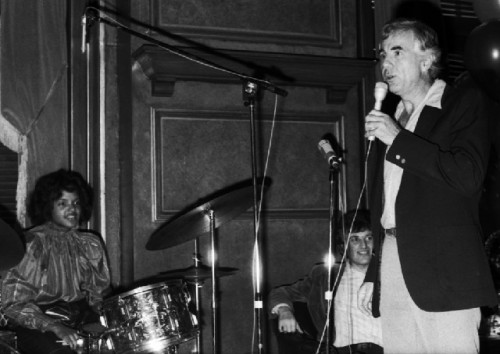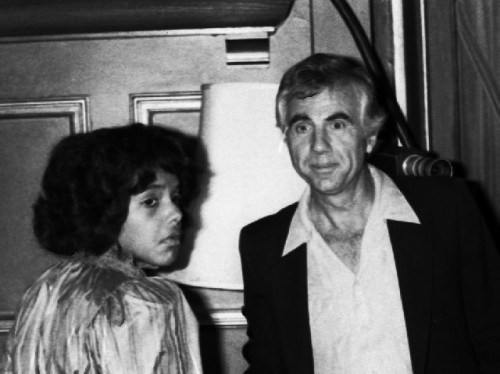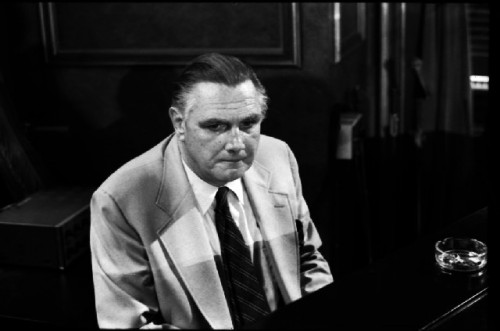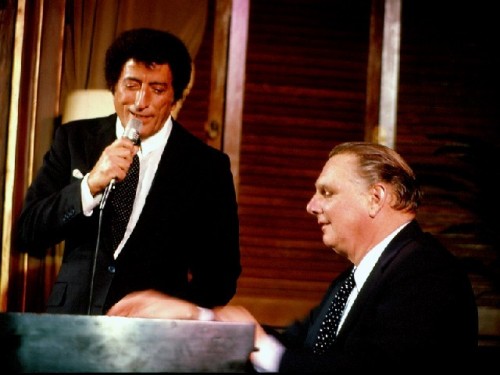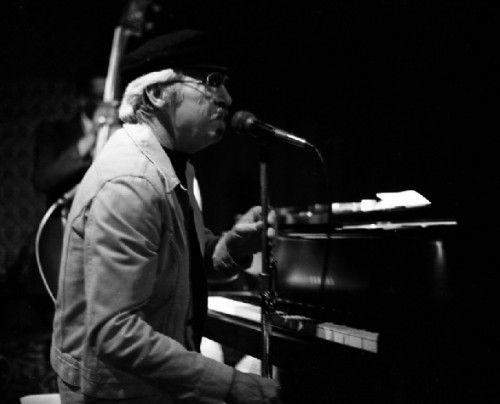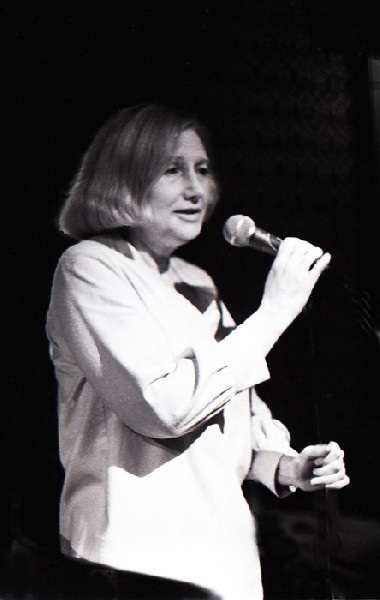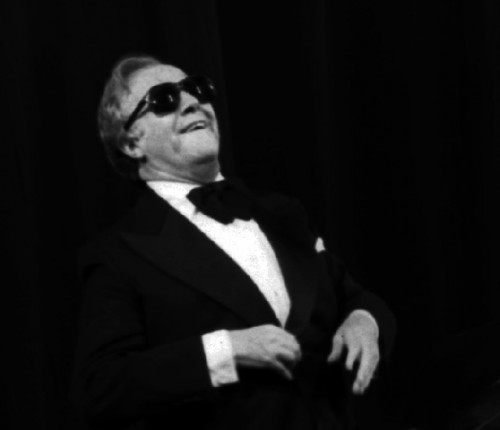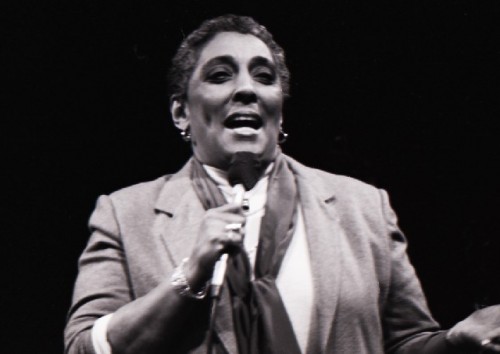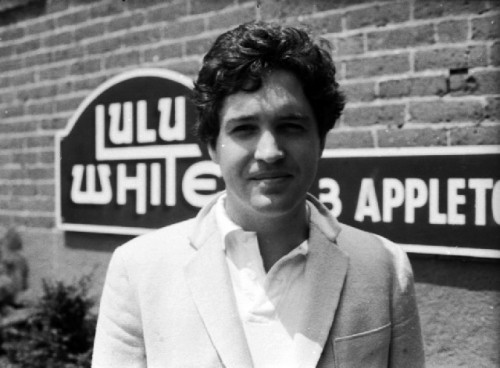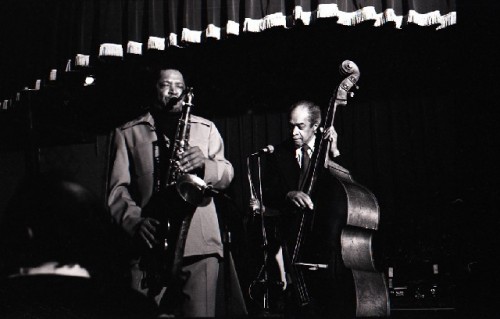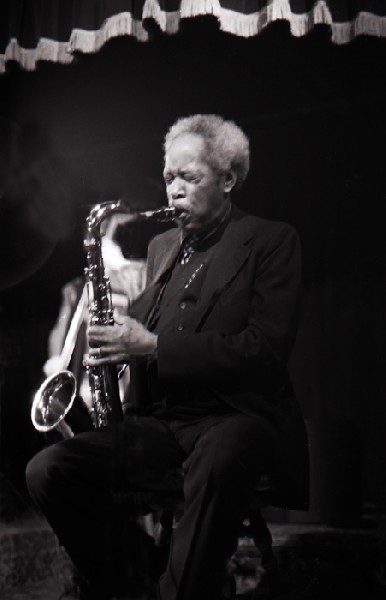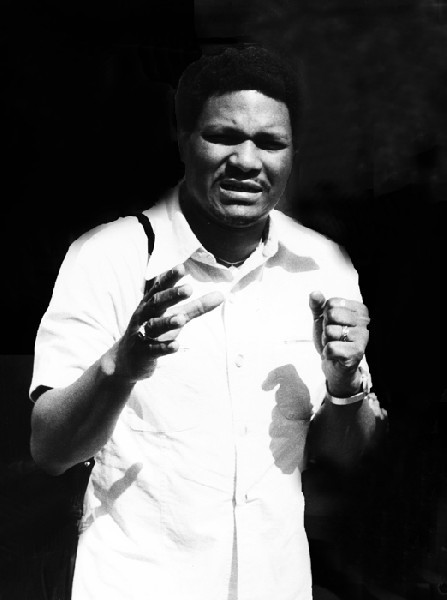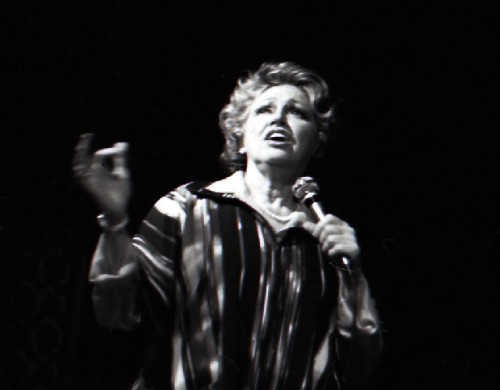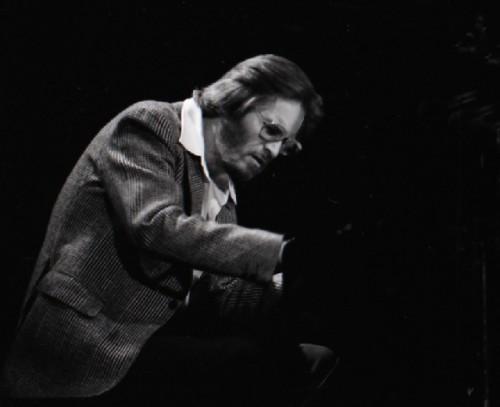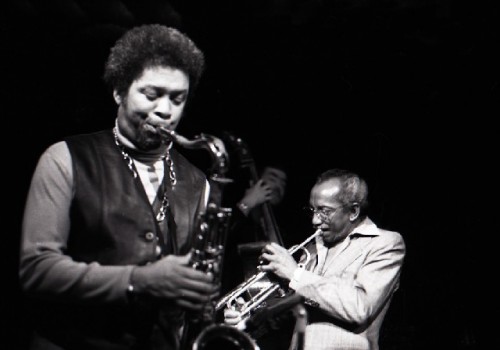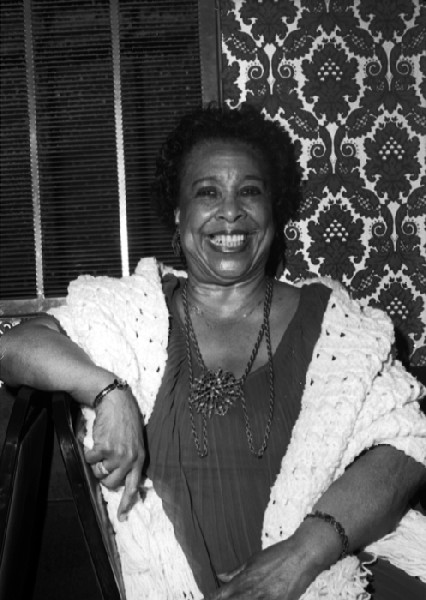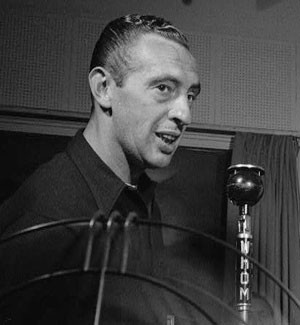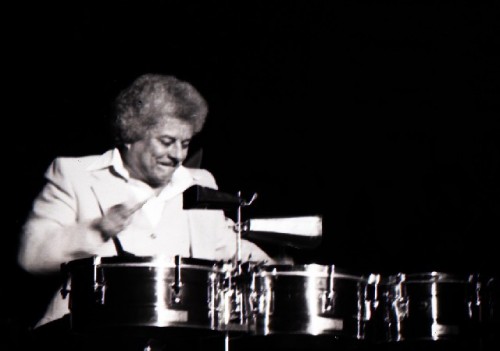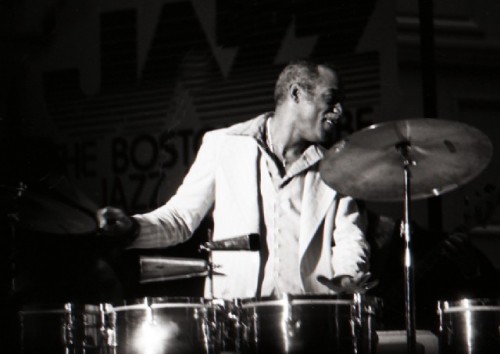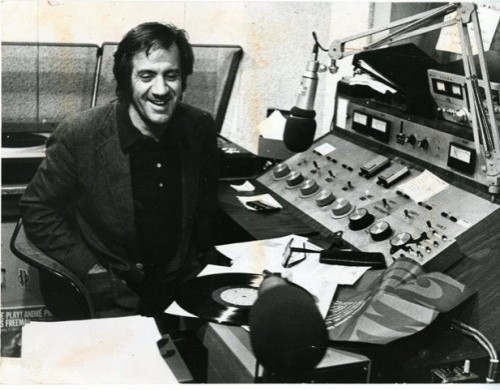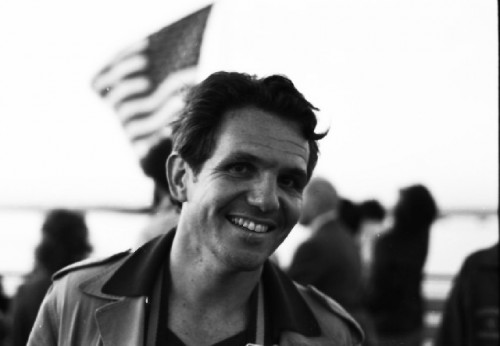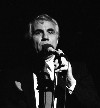Ron DellaChiesa WGBH DJ Two
Dawn Patrol in Boston's Jazz Clubs
By: Ron DellaChiesa and Charles Giuliano - May 23, 2011
Charles Giuliano What is your current status at WGBH?
Ron DellaChiesa I’m the voice of the BSO and I work for them part time. It’s year round. When the Symphony season ends we go right in and do four or five Pops broadcasts. Then we go to Tanglewood and do 26 broadcasts. That’s where I saw you the last time.
CG Tony Bennett.
RD We do that and then after Tanglewood pick right up again.
CG So you don’t have a daily radio show.
RD I do on WPLM on weekends. I do a Saturday night show called Strictly Sinatra. It’s been on for 15 years now.
CG Isn’t that the old Bill Marlow gig?
RD I pick up where Bill left off and I do Music America which is basically the Great American Songbook. So I have ten hours of air time on one of the last independently owned radio stations. (WPLM 99.1 FM and WPLM 1390 AM) They stream on the internet Easy 99.1. I do that show out of my house. I tape it and send it down. That’s commercially sponsored.
CG You also have the cruises.
RD We host our annual Tribute to Sinatra cruise. We just finished our fifth one to the Caribbean. I do a series of big band swing concerts. On June 24 I will hire a band and a couple of singers and get to meet my audience. At my age there’s not too many people doing that.
CG What’s Ron Junior up to?
RD He lives in Idaho and we have five grand children. He works for the Idaho Transportation Department. He’s 39 and it’s been quite an experience.
CG Can we talk about the era of Music America at GBH. I was fortunate to come on as a frequent guest and we played albums I brought along and talked about the music. We were also hanging out at Lulu White’s in the South End, the Merry Go Round, in Copley Square, Lennie’s on the Turnpike, Sandy’s Jazz Revival in Beverly, Fenton Hollander’s Jazz Boat on Boston Harbor, the Boston Globe Jazz Festival. I believe we met after Jazz Workshop and Paul’s Mall had closed.
RD Right. Freddy Taylor hadn’t started Scullers yet. Lulu White’s that club was run by what was his name?
CG Chester English. They also had Chef Chandler.
RD Willard Chandler was the chef. The place was wide open. They would serve drinks to three and four in the morning. Jane Lanouette was doing the PR. She now works with Allied Advertising. They had some of the great musicians coming in there. Bill Evans, Dave McKenna, Scott Hamilton, Illinois Jacquet.
CG Jo Jones was the house drummer. Wasn’t he living there?
RD He might have been. Willard Chandler had an old barber’s chair in the back room. He would sit there with a chef’s hat on. He was a throwback to another era.
CG Chandler had been previously involved in a scandal with another club in the South End. Wasn’t there are gangland slaying like the St. Valentine’s Massacre? An undercover reporter was killed in that event. I knew Herald reporters who covered the mob. They were the only reporters I knew who packed heat. Larry Novak who was pals with Bill Cardoso was a part of that scene.
RD Right Chandler’s which was a club owned by Howie Winter. Of the infamous Winter Hill mob. There’s a whole book out about him. I don’t remember that one but what about the Blackfriar’s Massacre?
(The 1978 Blackfriars Massacre was an American Mafia massacre that occurred on June 28, 1978 in Downtown Boston. The massacre claimed four criminals known to the police and a former Channel 7 (now WHDH-TV) Boston television investigative news anchorman and reporter, John A. Kelly. The massacre was allegedly over the sale of cocaine and the shooters that carried out the murders have never been caught.)
I don’t think Chandler was involved with that.
CG He had some weird side gigs.
RD He sure did. Chandler started as a chef with the old Hartford New Haven Railroad.
CG He served a mean gumbo.
RD He did man. They had very good food and jazz there. I remember one night I had my son Ron there and Sonny Stitt came over. He asked my son what he liked and Ron said “I like Bye Bye Blackbird.” He was about eight at the time. Stitt played about a half hour of that tune for him. He played every possible variation. A nursery rhyme. Things like that stand out. The club was wide open.
CG Let’s talk about Dave McKenna because you were very close to him.
RD I heard Dave play for the first time at the Columns in West Dennis. Dick Johnson introduced us. We bonded because we all liked the same things, the Red Sox, he loved to eat, and Italian food. He was just something else. When he settled in at the Copley Plaza that was a whole era, ten years.
CG He would come in for a couple of months at a time.
RD Even longer than that. He would go out on the road. Teddy Wilson would come in, or Jean Harris, other piano players but it really was McKenna’s room.
CG Before that it was the Merry Go Round Room run by Clinton Creasey.
RD He was a hair stylist in Cambridge. Yes that was the previous era. The great cabaret acts performed there Bobby Short, Mabel Mercer, Carmen McRae, Blossom Dearie, Mary Lou Williams. You could sit and revolve around or stay put. George Shearing would be smiling at some guy floating by. The Shearing quintet played there. It was a classy room. The room had a long history. I think it started in the ‘30s or ‘40s. They dismantled that whole mechanism. It was a big deal to take it out of there. The Merry Go Round was a very unique room in the country.
CG Chester English tried cabaret at Lulu’s. Do you remember a gig with Madam Bricktop?
RD Yes. The legendary Madam Bricktop from Paris. She sang “Miss Otis Regrets” by Cole Porter. Her piano player was Hugh Shannon. He was big in New York for cocktail piano. McKenna used to say “I play cocktail.” I would say no Dave you don’t play cocktail. He was his own man with that left hand. That walking bass line.
CG Let’s talk about some of the standard Boston jazz musicians of that time. Ray Santisi piano, Al Dawson, drums, John Neves, bass.
RD Herb Pomeroy. The Herb Pomeroy Big Band played at the Stables.
CG Do you go back to that era?
RD I do. I was at BU at the time and cut classes to go and hear their rehearsals. That band had everyone in it Lenny Johnson, Joe Gordon, Varty Haroutunian, Jimmy Mosher, Dick Johnson, Charlie Mariano, Jimmy Zetano, John Neves. Jean DeStasio, trombone, remember him? Dave Chapman one of the great lead alto players. They’re all gone now. Not only did he have a big band he scaled it down to an octet at times. I cut my teeth on that.
CG Did you go to Storyville?
RD Oh yeah. I was a member of the Teenage Jazz Club. George Wein started that. I was then at Quincy High School. Around 1956-1957 we would go in on a Sunday afternoon. George would have these great musicians play for us and we would drink coke. I heard the Sauter Finegan Orchestra there. I listened regularly to Symphony Sid. Most of the time he was stoned.
(Sid Torin (born Sidney Tarnopol on December 14, 1909- died September 14, 1984) Sid went with his friend Norman Furman to Boston about 1952. Furman had become general manager of WBMS, which had been doing classical music (the call letters reportedly stood for "World's Best Music Station"). He changed the format and hired Sid, who did a gospel show and a jazz show. But Sid had a unique arrangement with Furman—he worked at WBMS in the daytime, and at night, he worked for WCOP, where he did live jazz shows, just like he had done in New York. During the mid 1950s, Sid could be heard live from the Hi-Hat, a night club owned by Julian Rhodes, in a part of Boston known for live jazz—the area near the intersection of Massachusetts and Columbus Avenues.)
CG I heard Symphony Sid as a teenager in Boston and then later when I lived in New York. By then he was into an all Latin Jazz format with Tito Puente, Willie Bobo, Mongo Santamaria.
RD Sid Torin ended his last days down in the Florida Keys.
CG He was the most legendary jazz DJ in America.
RD Then Tony Cennamo came along.
(Tony Cennamo, September 30, 1933 – June 8, 2010, was for 25 years a jazz disc jockey on Boston University's WBUR. When he had a morning show in the 1970s and 1980s he began his show with Oliver Nelson's Stolen Moment).)
He did a long stint in the morning from six to eleven. Cennamo had a long run of ten years or so when he was the king of the morning.
CG More than king I thought of Tony as something of a dictator. He had a very purist definition of jazz which was not generous and inclusive to those who didn’t conform to his dictates. Like Wynton Marsalis and other jazz purists he regarded many of the great white performers as imitators.
That was the mantra that Ken Burns followed when he did his PBS Jazz series advised by Marsalis and the critic Stanley Crouch. The great white musicians were notable for their absence.
Cennamo stated that "Jazz is Monk, Ornette, Duke, Bird, Dizzy, Miles, Trane, Toshiko, Pee Wee Russell, and Gil Evans, Mingus the imaginative, the juices flowing, not the bland, watered down, the whitewash of a thousand Xeroxed copies. Jazz is not safe and doesn't hide in Symphony Hall…Most new forms of jazz music are initiated by black musicians, White players (with few exceptions) copy, black musicians invent!"
It was easy to end up on the wrong side of him.
RD He and I had a falling out.
CG With everyone.
RD We used to hang out then I started to play a mixed format. He was a purist.
RD I played Rosie Clooney and Mel Torme. And started to move into film music. He felt that was betraying the cause. I didn’t do a jazz show. Music America was very eclectic.
CG Do you think the Boston musicians we talked about every got the recognition and respect they deserved?
RD Dick Johnson certainly did. He took over the Artie Shaw band. Artie had turned his clarinet into a lamp. Dick sent an album to Artie and he said this is damn good clarinet playing would you like to front my band? That’s how that happened. Herb Pomeroy did as did Al Dawson. Charlie Mariano played a lot in Europe.
CG Al Dawson was considered to be one of the great drummers but he didn’t like to tour. He went on the road with Brubeck. Did you ever go to Connoly’s in Roxbury?
RD Absolutely. The Sunday afternoon jam sessions. With Jimmy Tyler.
CG Jimmy Bottoms Up Tyler.
RD Hillary Rose was the organist. That was the house group and they would bring in Coleman Hawkins, Ray Nance, Paul Gonsalvez, Johnny Hodges. A lot of guys from the Ellington band played there.
CG I think Tony Williams was the house drummer.
RD I though Joe Riddik was.
CG Sam Rivers played there.
RD The only guys going as purists in Boston radio today are Steve Schwartz and Eric Jackson. Eric is celebrating his 30th anniversary this month.
CG Do you remember when we were having lunch with Fenton Hollander. He was wondering what to do next with the jazz boat and I said “Jazz is dead.”
RD I do remember that. He took over the Regattabar at the Charles Hotel. He later dropped out of that when they brought in New York management. He’s out of the business as far as I know.
CG I put him in the jazz business. He rented a harbor boat and put on a concert with a string quartet.
RD The Jazz Boat.
CG No this was before that. He was doing classical music. I wrote a review for the Herald which he used to promote his series. He invited me to dinner and I said what would really go over would be to combine jazz and the harbor cruise. I recommended the New Black Eagle Jazz Band. Not only did it take off he added more boats.
RD Was that before he took over the Regattabar.
CG Well before that.
RD He had a long run and was an important force in the jazz community here.

